Greece experiences occasional flooding, particularly during periods of heavy rainfall or storms, which can cause rivers to overflow and inundate low-lying areas. The most susceptible regions include parts of central and northern Greece, as well as areas near rivers and streams. Flash floods can occur suddenly, posing significant risks to communities and infrastructure. It’s crucial for communities to have effective flood management and preparedness measures in place to mitigate the impact of such events.
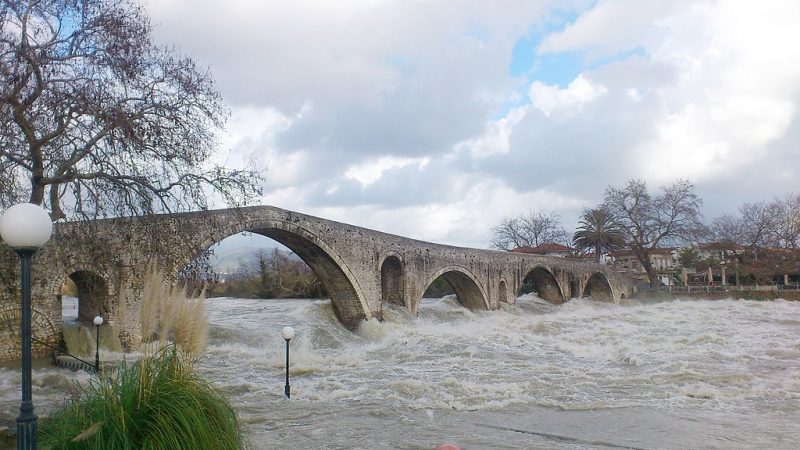
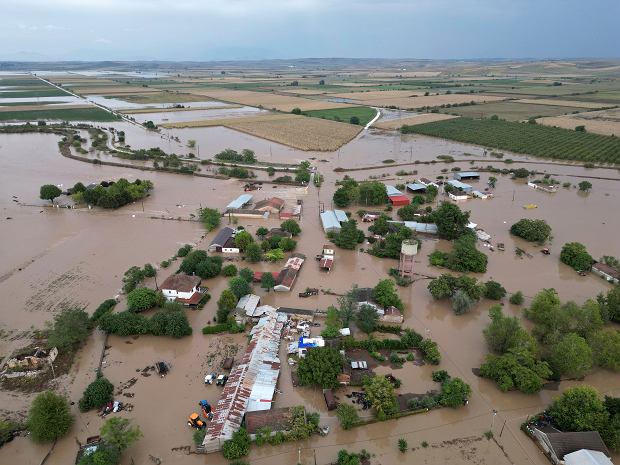
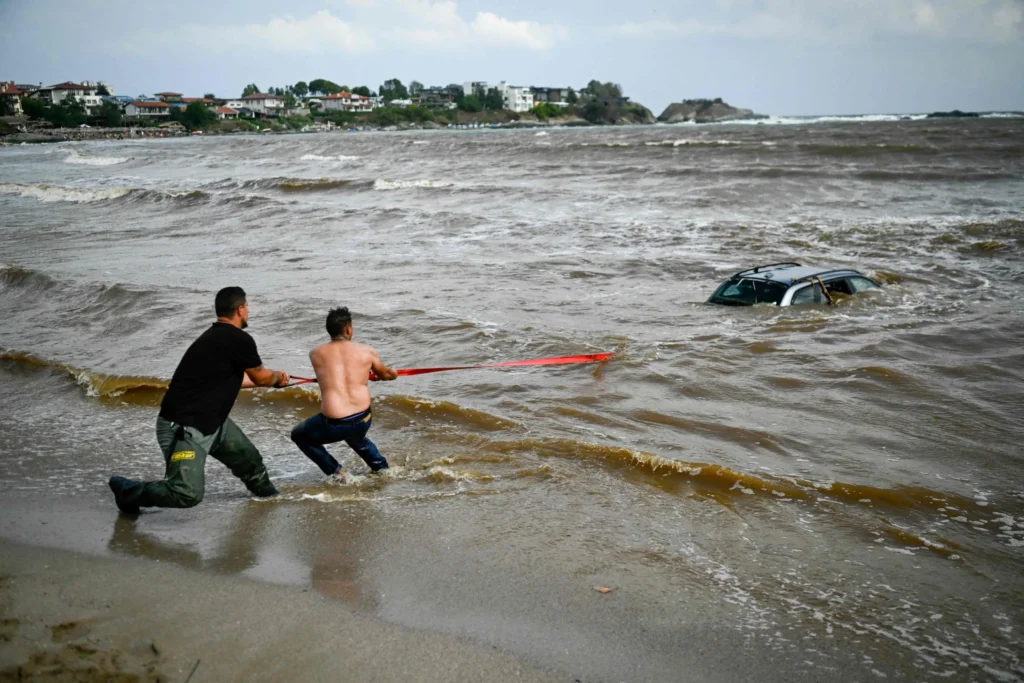
Causes floods in greece
Heavy Rainfall:
Intense and prolonged rainfall can overwhelm drainage systems and cause rivers to overflow their banks, leading to flooding, especially in low-lying areas.
Topography:
Greece’s mountainous terrain can exacerbate flooding, as rainwater flows rapidly downhill, potentially causing flash floods in valleys and plains.
Urbanization:
Urban development can increase surface runoff by replacing natural absorbent surfaces like soil and vegetation with impermeable materials such as concrete and asphalt. This can lead to faster and more extensive flooding during heavy rainfall.
Deforestation:
Deforestation can reduce the land’s ability to absorb rainfall, increasing surface runoff and the risk of flooding.
River Management:
Alterations to river channels, such as channelization or straightening, can disrupt natural drainage patterns and increase the likelihood of flooding downstream.
Climate Change:
Climate change can lead to more frequent and intense weather events, including heavy rainfall and storms, which can contribute to flooding in Greece and around the world.
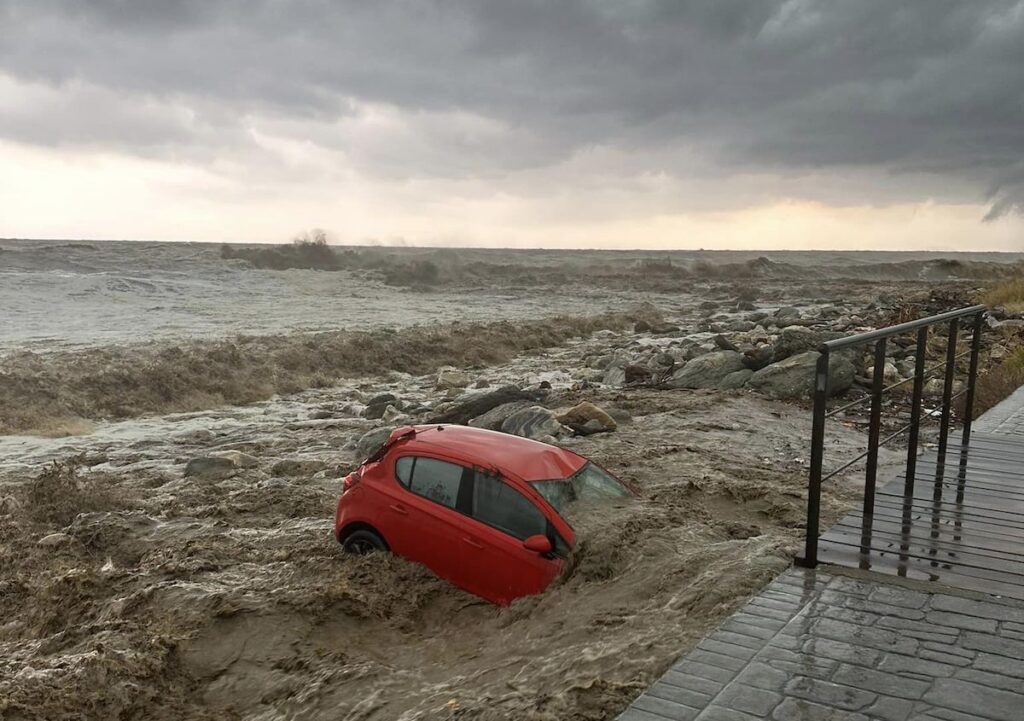
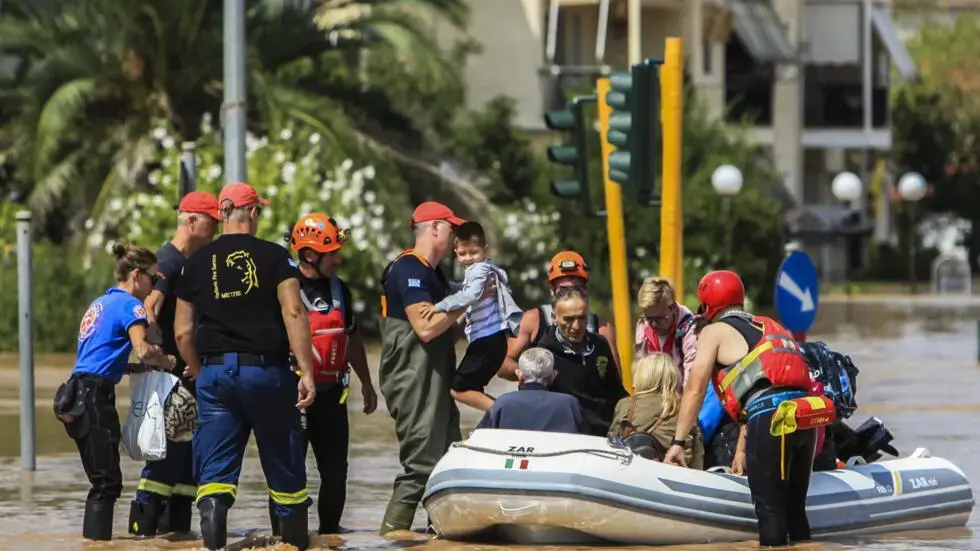
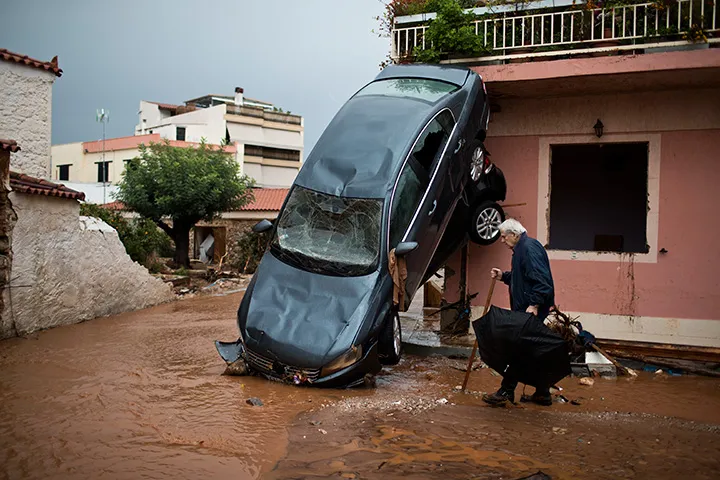
Consequences floods in greece.
Loss of Life and Injury:
Floodwaters can pose immediate dangers to human life, causing drowning or injury through swift currents, debris, or collapsing infrastructure.
Property Damage:
Floods can damage or destroy homes, businesses, infrastructure (such as roads and bridges), and agricultural land, leading to financial losses for individuals, communities, and the government.
Displacement and Homelessness:
People may be forced to evacuate their homes due to flooding, leading to temporary or long-term displacement. This can result in homelessness, disruption of livelihoods, and psychological stress for affected individuals and families.
Health Risks:
Floodwaters can contain contaminants, sewage, and hazardous materials, increasing the risk of waterborne diseases, infections, and respiratory issues. Mold growth in flooded buildings can also pose health hazards.
Disruption of Services:
Flooding can disrupt essential services such as electricity, water supply, transportation, and communication networks, affecting daily life and emergency response efforts.
Environmental Damage:
Floods can harm ecosystems, including loss of habitat, soil erosion, and contamination of water bodies. Damage to agricultural land can also impact food production and local economies.
Economic Impact:
The costs associated with flood damage, emergency response, and recovery efforts can strain local economies and government budgets. Businesses may suffer losses, leading to unemployment and reduced economic activity.
Social and Community Impact:
Floods can undermine social cohesion and community resilience, particularly in areas where vulnerable populations are disproportionately affected. Recovery and rebuilding efforts may also strain social resources and relationships.

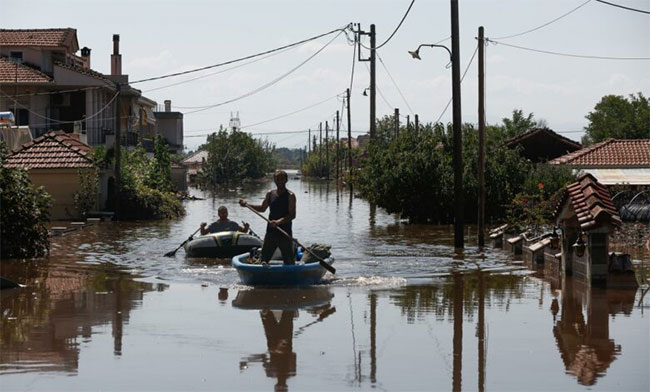
Flood protection in Greece
Floodplain Management:
Greece implements floodplain management strategies to regulate development in flood-prone areas, reducing the risk of damage to infrastructure and property.
Flood Control Structures:
The country employs various flood control structures such as dams, levees, and flood walls to mitigate the impact of flooding and protect vulnerable communities.
Early Warning Systems:
Greece has established early warning systems that utilize weather forecasting and river monitoring to provide timely alerts to residents and authorities in flood-prone regions.
Drainage Infrastructure:
Investment in drainage infrastructure, including stormwater management systems and canal networks, helps to improve water flow and reduce the likelihood of flooding in urban areas.
Environmental Conservation:
Preserving natural habitats such as wetlands and forests contributes to flood prevention by absorbing excess water and reducing runoff.
Public Awareness and Education:
Greece promotes public awareness and education campaigns to inform residents about flood risks, evacuation procedures, and emergency preparedness measures.
International Cooperation:
Greece collaborates with neighboring countries and international organizations to exchange knowledge, share best practices, and coordinate response efforts during flood events.
By implementing these measures, Greece aims to enhance resilience against flooding and safeguard the well-being of its citizens and infrastructure.
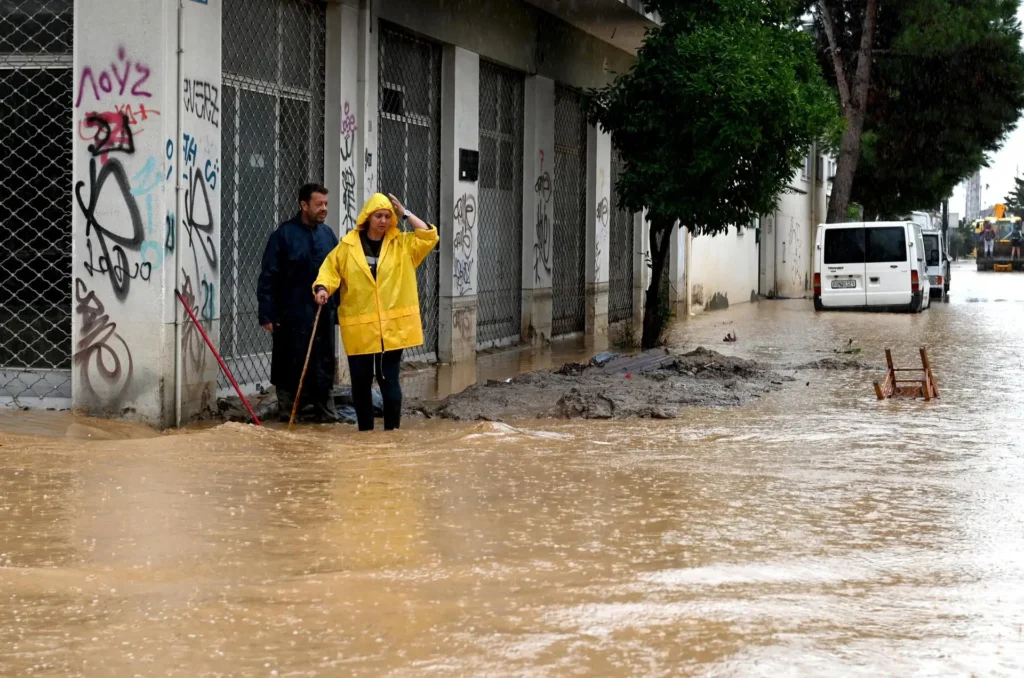
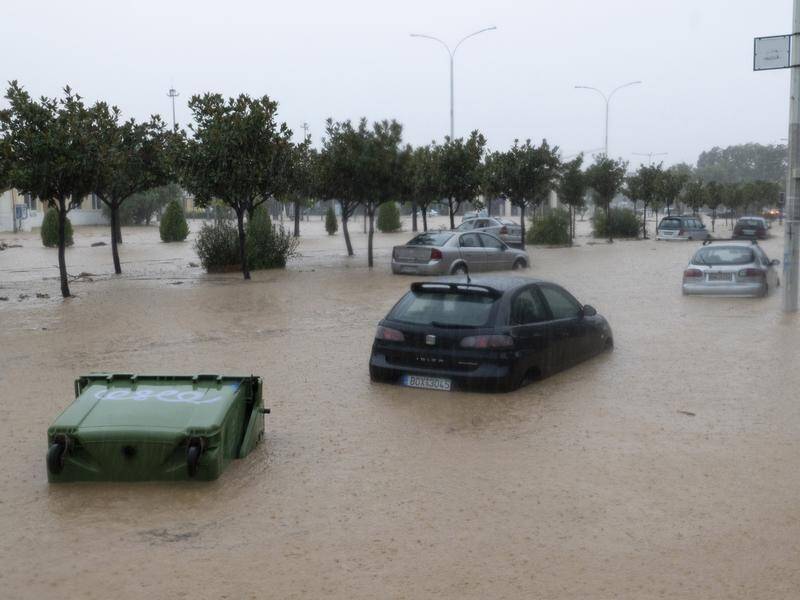
Prepared by: Kinga Balińska, Magdalena Kurek, Julia Andrzejewska, Natasza Szczygieł, Weronika Szczecińska. From II LO Sieradz
